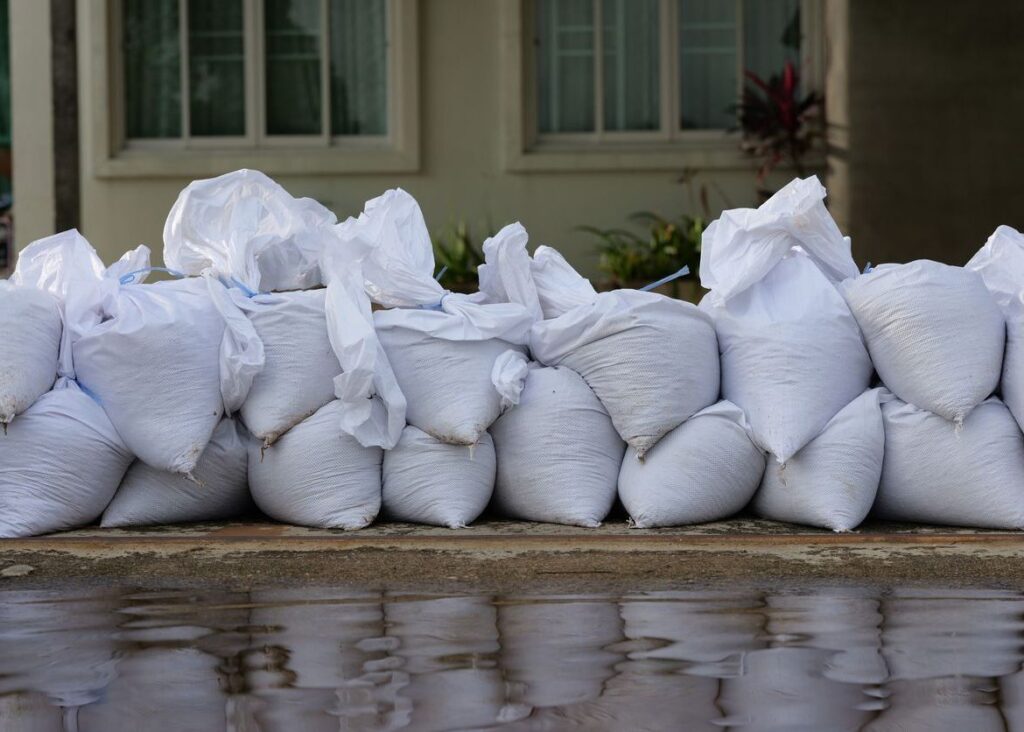By Dixie Somers
It's a nightmare for many homeowners: coming home to a puddle of water in your kitchen, basement or laundry room. Floods can cause extensive damage to your home and belongings, leaving you with costly repairs and the hassle of starting over. But with the right preparation, you can minimize the impact of a flood on your home. In this guide, we'll discuss how to prepare your home for the next flood season. Now put on your swampers and let's get going!
Understanding Your Risk
The first step in preparing for floods is understanding your risk. Is your home located in a flood-prone area? Are there any bodies of water nearby such as rivers or lakes that could overflow after heavy rain? You'll want to research and understand the likelihood of flooding in your area so that you can take appropriate precautions.
Inspect Your Home
Before the next flood season arrives, it's essential to inspect your home for any weak spots that could lead to flooding. Check your roof for any damaged or missing shingles and make necessary repairs. Clean out gutters and downspouts to ensure proper drainage. Inspect your foundation for cracks or leaks and seal them if needed. It's also a good idea to elevate any electrical systems such as outlets, switches and appliances in your basement.
Another crucial step in preparing for floods is ensuring your sump pump is usable. A sump pump helps to remove water from the lowest part of your basement or crawlspace, preventing it from flooding. Make sure your sump pump is in proper working condition by testing it regularly. If you don't have a sump pump or if yours is outdated and not functioning correctly, consider investing in a new one or getting sump pump installation done. It's better to be safe than sorry when it comes to protecting your home from floods.
Prepare an Emergency Kit
In the event of a flood, you may need to evacuate quickly. That's why having an emergency kit ready is crucial. Your kit should include essentials such as non-perishable food, water, flashlights, batteries, first aid supplies and a battery-operated radio. It's also wise to have a plan in place for your family and pets so that everyone knows what to do in case of an emergency.
It's vital that you involve your children in the preparation process and educate them about what to do in case of an emergency. Discuss with them the potential risks of flooding and how they can stay safe. Teach them how to recognize flood warning signs and create a family emergency plan that includes designated meeting spots and contact information for loved ones. It's also a good idea to practice evacuation drills with your children so that they are familiar with what to do in a real-life situation.
Consider Getting Flood Insurance
Many homeowners insurance policies do not cover flood damage, so it's worth considering purchasing separate flood insurance. This can provide you with financial protection should your home suffer damage from a flood. Be sure to research and understand different policies and coverage options before making a decision.
When considering flood insurance, it's crucial to understand the coverage and limitations of a policy. A great policy will provide comprehensive coverage for your home and belongings, including repairs and replacements due to flood damage. So-so policies may only cover a limited amount or exclude certain areas of your home from coverage. It's also essential to look at the cost of the policy in comparison to the potential costs of flood damage. Don't just settle for the cheapest option without fully understanding what is covered. Consult with an insurance agent if you have any questions or need clarification on a policy before making a decision.
Keep Important Documents Safe
In the event of a flood, important documents such as insurance papers, passports and birth certificates can be easily damaged or lost. It's essential to keep these documents in a waterproof and fireproof container or store them in a safe deposit box. You may also want to make digital copies and store them securely online.
Create a Flood Plan
Having a plan in place for what to do during a flood can save you valuable time and stress. This includes knowing your evacuation route, having emergency contact information readily available and ensuring everyone in your household knows the plan. It's also essential to practice your plan regularly so that everyone is familiar with it.
Stay Informed
It's vital to stay informed about potential flooding in your area. Sign up for alerts from local authorities and keep an eye on weather forecasts. If there is an imminent threat of flooding, be prepared to act quickly.
Know How to Be Safe in a Flood
Lastly, it's essential to know how to stay safe during a flood. If you are advised to evacuate, do so immediately and follow designated evacuation routes. Avoid walking or driving through flooded areas as the water may be deeper than it appears. If you become trapped in your home during a flood, seek higher ground and call for help.
By understanding your risk, inspecting your home, preparing an emergency kit and plan, and staying informed, you can minimize the impact of a flood on your home. Remember to also check in with your neighbors and community members to see if they need any assistance during a flood. With proper preparation and precautions, you can stay high and dry during the next flood season. So don't wait until it's too late—start preparing now!
Dixie Somers is a freelance writer who loves to write for business, health and women’s interests. She lives in Arizona with her husband and three beautiful daughters.








